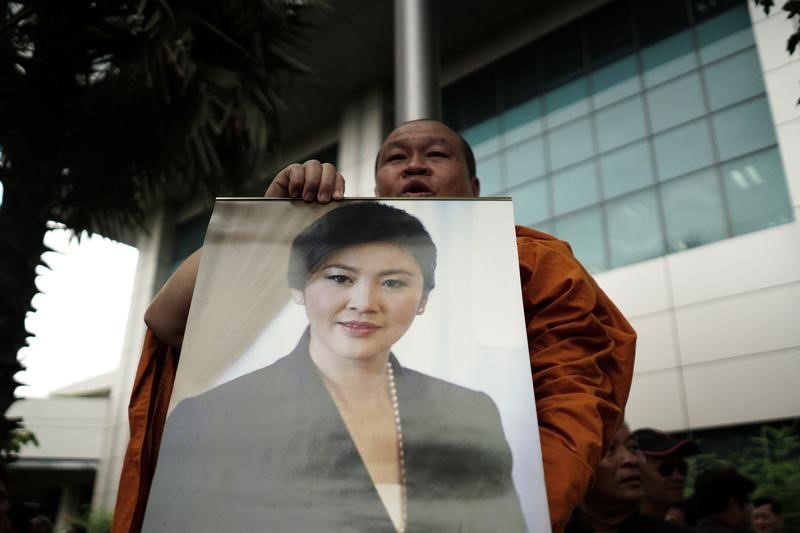By Aukkarapon and Niyomyat
BANGKOK (Reuters) - Hundreds of supporters cheered as Thailand's former prime minister Yingluck Shinawatra on Friday arrived for the final hearing in her trial on charges she was negligent in overseeing a rice subsidy scheme which wasted billions of dollars.
Yingluck, overthrown in a 2014 military coup, faces up to 10 years jail if found guilty. The hearing in the Supreme Court in Bangkok is expected to set a date for a verdict.
Yingluck and her Phue Thai Party say the trial is politically motivated and aimed at discrediting her flagship policy, which helped the Shinawatra clan win every election since 2001, but was a disaster for state coffers and distorted global rice prices.
The struggle for power between a conservative establishment and the populist movement founded by Yingluck's brother Thaksin Shinawatra, has been at the root of more than a decade of political turmoil in Southeast Asia's second biggest economy.
Thaksin was overthrown as prime minister in 2006 and now lives abroad to avoid corruption charges.
An army of police officers were deployed around the Supreme Court as Yingluck supporters cheered her arrival - in defiance of junta leader Prayuth Chan-ocha's request for her followers to stay away.
"I hope Yingluck will not be found guilty so she can become prime minister again and bring back the rice scheme," said Napa, a 56-year-old rice farmer from Ratchaburi province, west of Bangkok. She declined to give her full name.
Appearing moved to tears by the show of support, Yingluck made no comment before entering the court room.
Yingluck's legal team said the former prime minister had asked to be allowed to give her closing statement on Friday. Her lawyers have also petitioned the Constitutional Court over the case, potentially delaying the Supreme Court's verdict.
In 2015, the military-appointed Legislative Assembly impeached Yingluck and banned her from politics for five years over the alleged mismanagement of the rice scheme.

But Yingluck remains popular among her supporters, particularly in the northeast, Thailand's poorest region.